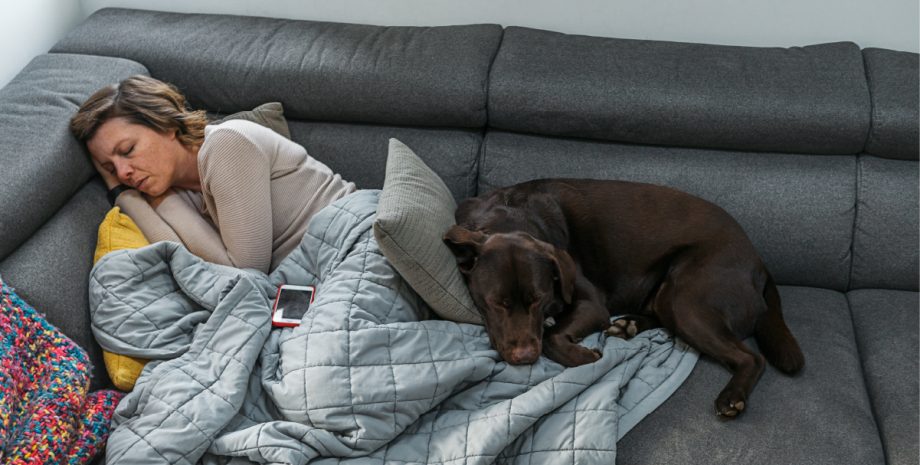

Sleep. Is it hard to come by for you? Even though we feel more drowsy with the sun setting earlier and earlier in the day this time of year, it can be difficult to get a good night’s rest. Chalk it up to the fact that many of us are more sedentary during the colder months, making us feel more restless when it comes time to lay down our sleepy heads for that long winter’s nap.
According to the Sleep Foundation, sleep and exercise are closely related. If we have a good night’s rest, we are more capable of hitting our exercise goals the following day. And, on the flip side, if we exercise the right amount, we are more likely to sleep better at night.
So, you want to get some better sleep? Here is what you need to do:
Watch the clock
Exercising during the day can help you fall asleep at night faster and sleep deeper. However, timing matters. Exercising in the morning will do just the trick for many people, especially if they favor a cardio workout or resistance training. Afternoon workouts that exhaust the muscles, such as H.I.I.T., can help to promote sleep at night as well. It is important to note that exercising too late in the day may have an opposite effect, flooding your body with endorphins and other chemicals that keep you stimulated and awake.
Choose the right exercises
The magic of incorporating aerobic exercise and resistance training into your daily or weekly routine is they can both provide full body benefits. Cardio promotes faster breathing and a more rapid heartbeat, which can work to lower blood pressure and reduce your risk of developing heart disease. As far as sleep is concerned, moderate intensity cardio is the ticket. Think brisk walking, water aerobics, and bike rides on slightly elevated terrain. This type of aerobic exercise can actually decrease the severity of sleep disorders, such as sleep apnea, and help those with insomnia as well.
Resistance training has an element of cardio but also involves building muscle strength throughout the entire body. Lifting weights or using bodyweight exercises or exercise bands are all considered resistance training. Pilates is another popular form of this type of exercise. You can combine both aerobic exercise with muscle building by using methods such as circuit training, CrossFit, and H.I.I.T. Remarkably, resistance training can lower your risks for anxiety, depression, and overall stress, which are risk factors for insomnia and other sleeping disorders.
Yoga as a beneficial sleep aid
If you have ever attended a yoga class, you know that the final pose, Savasana, is like a mini rest. The beauty of yoga is that it addresses both the mind and body. Students are led through a sequence of strength training, stretching, and more, which can help them to feel balanced and rested. The final pose, traditionally considered the most important one, gives students a chance to rest deeply in a meditative state. This meditation, as it turns out, can help those who have difficulties sleeping. This form of exercise is known to decrease stress, boost the immune system, and ease aches and pains. You may want to try out some Yoga and see if it can work wonders for your nightly shut eye. Restorative or gentle classes can be especially helpful in the evening hours leading up to bedtime.
More tips
On top of incorporating more exercise into your daily life, creating a sleep routine for yourself can also work wonders in helping you to get a good night’s rest:
- Decide on a set bedtime
- Turn off electronics 30 minutes before laying down for bed
- Take a warm bath
- Set your room to a comfortable temperature, usually between 60-71 degrees
- Enjoy a light snack or bedtime tea
- Listen to relaxing music
- Stretch or do some light yoga
- Journal
- Read a good book
The next time you find yourself feeling drowsy from a night of insomnia or tossing and turning, think about adding more exercise into your routine. Not only will you gain strength, physical well-being, and mental clarity, but you will also find it easier to settle down for that long winter’s nap.
Relevant Services
Sleep Disorders
Our Sleep Center can diagnose and treat causes of disrupted sleep.